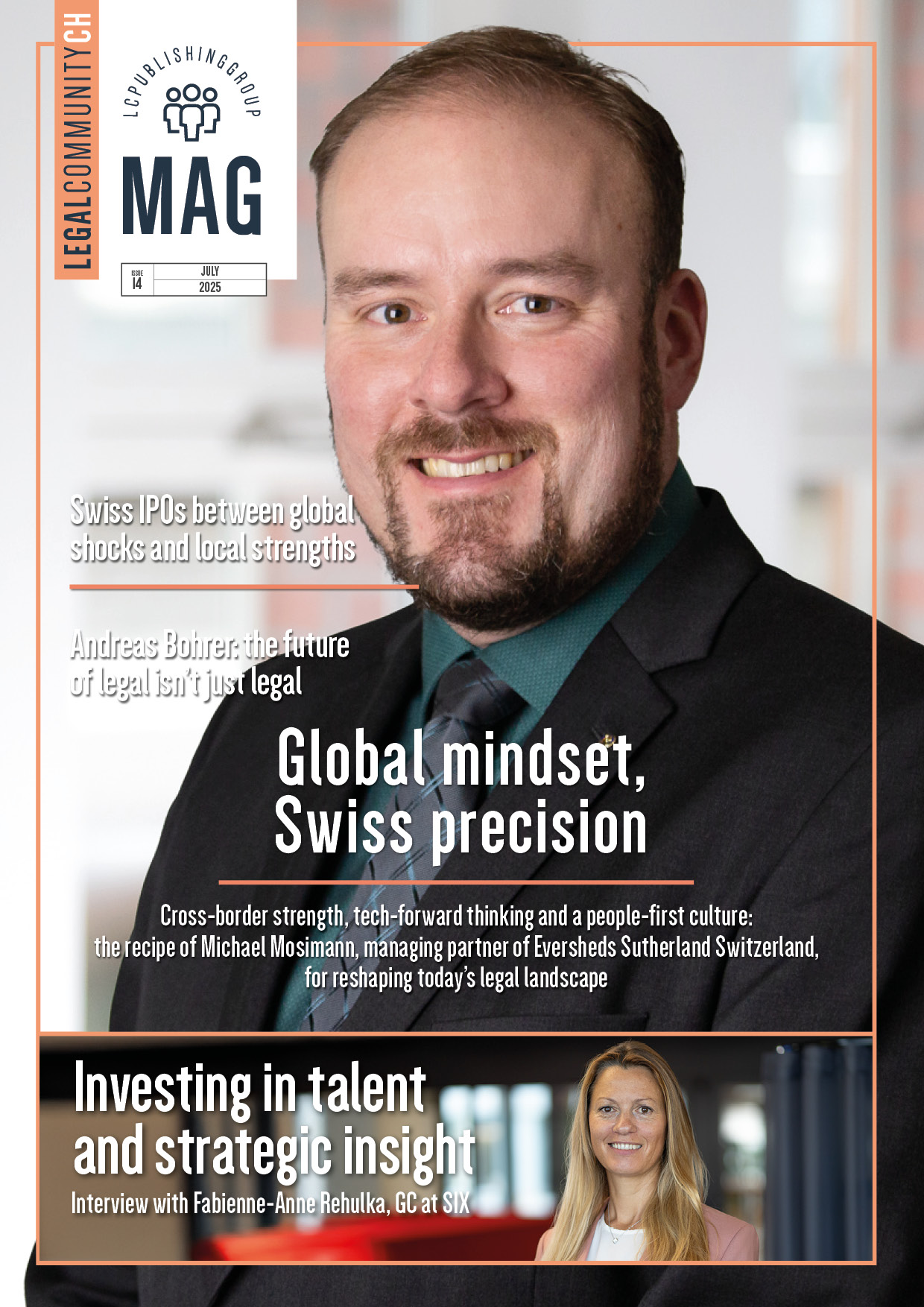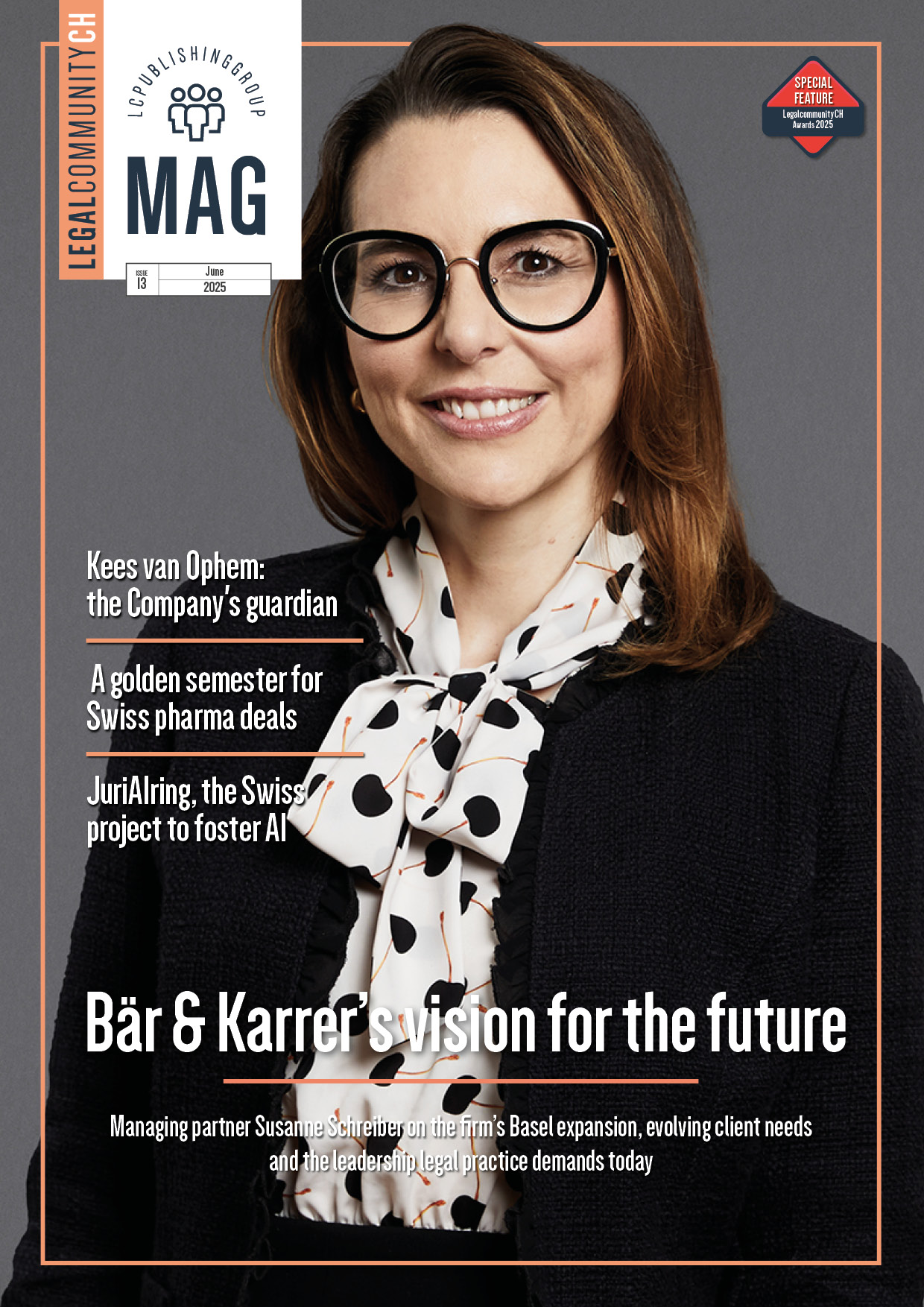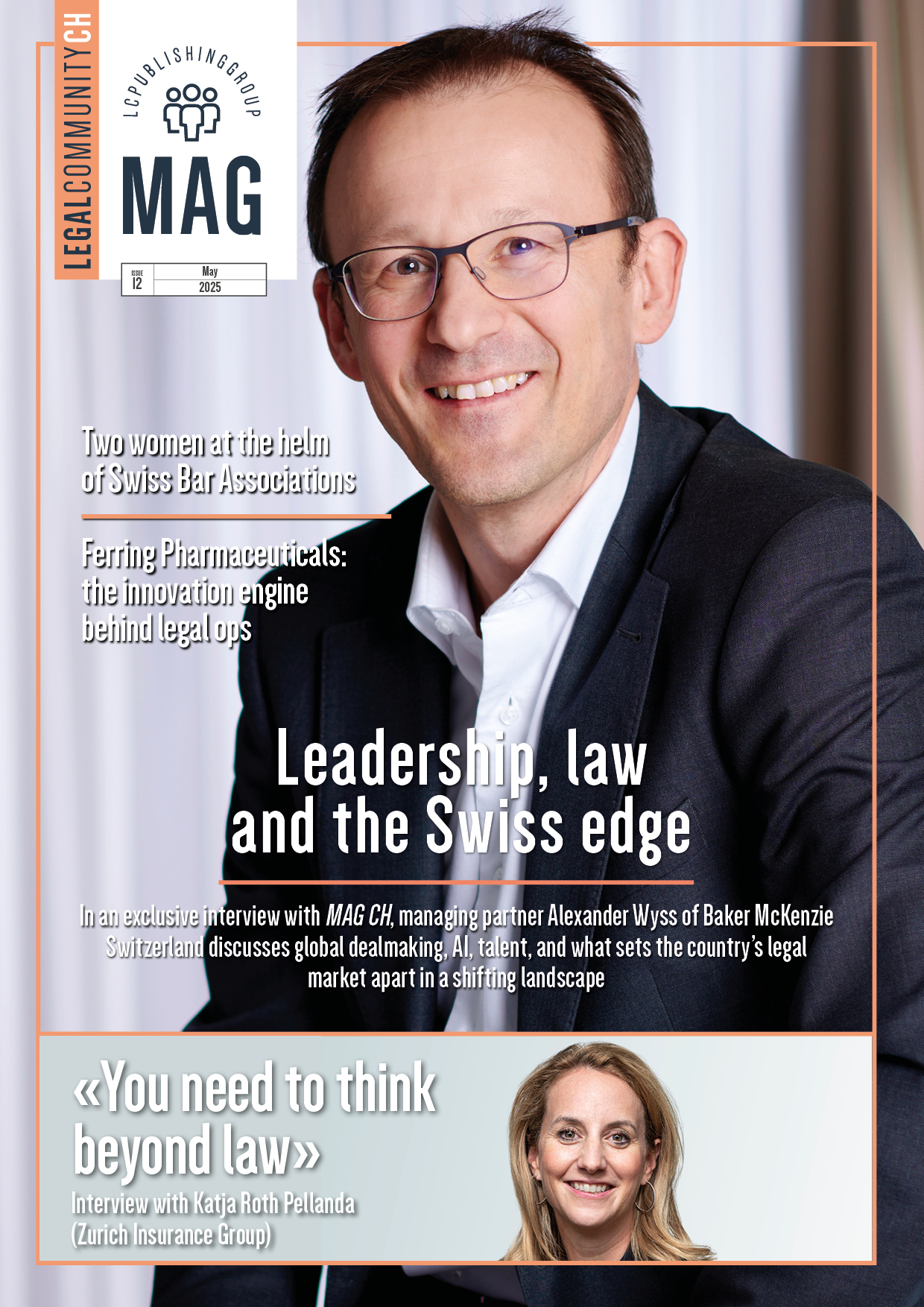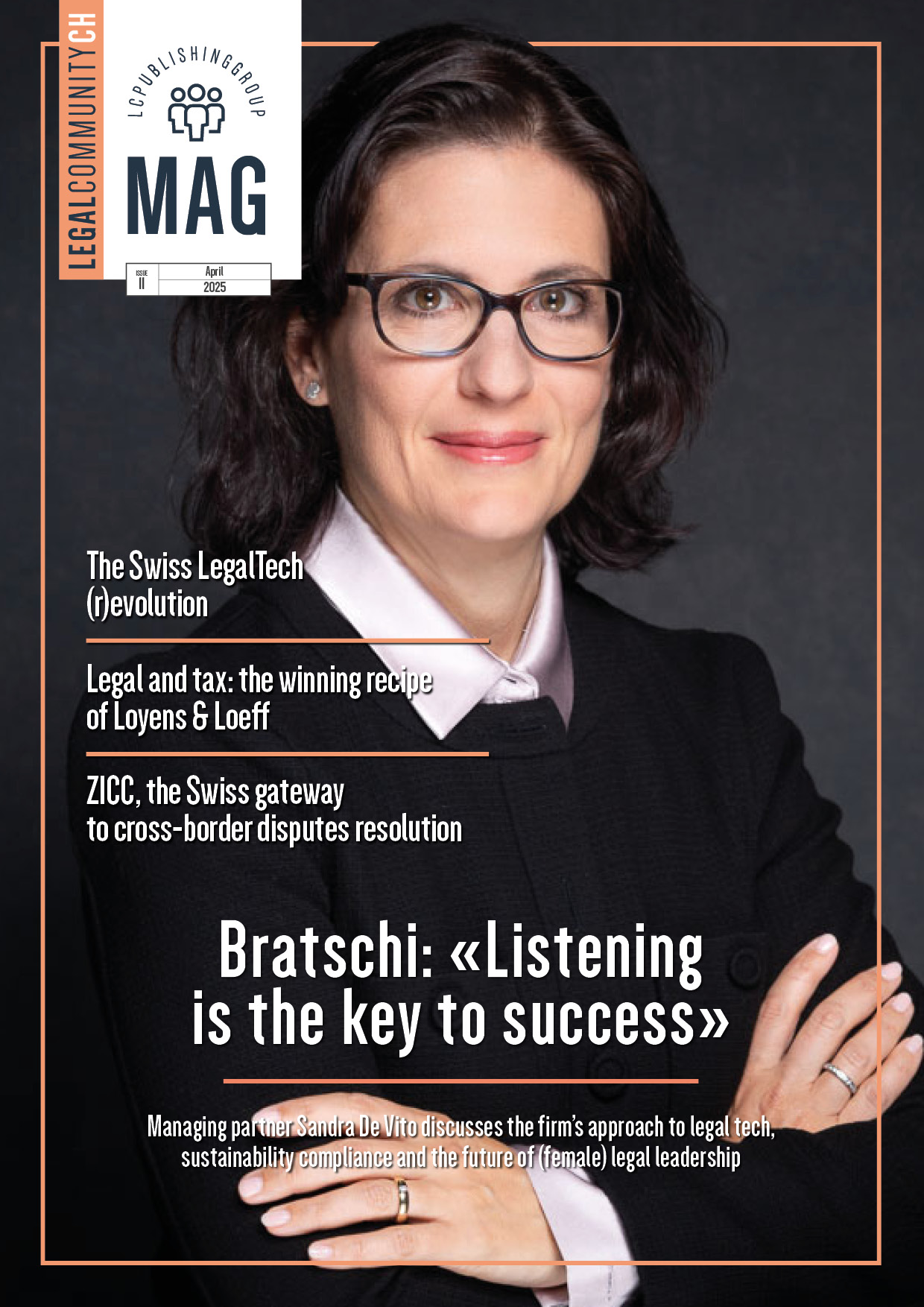Imagining the future in times of isolation – a talk with Guenther Dobrauz
by alessio foderi
As one of seven members of PwC’s Global Legal Leadership Team and PwC Legal’s Global LegalTech Leader, Dobrauz is passionate about technology and disruption. He’s the right person to talk with if you would like to get an idea of how legal firms of tomorrow will look like. That’s why MAG and Legalcommunity.ch decided to interview him. Particularly because, in this context, Covid-19 represents both a further challenge and an occasion to understand how human and digital worlds actually interact and can progress together in legal sphere. If it’s true that switching to remote work, creating new social habits, coping with virtual spaces are the main nowadays changes, other infostructure technologies are just around the corner.
How do you foresee the post-Covid-19 scenario technologically speaking?
I think that even those who weren’t originally positively disposed towards technology have now seen the benefits. This is a first-hand experience for everybody. We all switched to video chats and online collaborative tools. For example: Beforehand there were people still sending around mark-up documents in pdf format, now a lot of people are actually collaborating online and seeing each other’s changes in documents in real-time. Not to forget that, at the moment, a huge number of documents have to be used or worked on. I think the adoption, the familiarity and the trust in technology has experienced a huge boost. The people won’t go back coming out from this experience.
What will be the LegalTech solutions of tomorrow?
(laughs) Questions about the future are always difficult… I’ll give you my LegalTech perspective: I would say there will be infostructure technology that everybody will be using. By that I mean tools that allow us to collaborate and engage. Collaboration is key and the use of technology is essentially for that. Plus, there will be more sophisticated tools, AI-powered and leading towards automation on documents. I believe those kinds of things will get a huge boost.
What’s your personal definition of disruption?
It’s one of those words which everybody likes, sounds cool and whose meaning multiple people don’t understand. In the legal field we won’t see disruption but evolution. This is because the trigger for disruption is the establishment of a new dominant design. In the legal sphere the dominant design is not technology. You know, you can have the best computers or AI tools but if they can’t be admitted in a courtroom… You have regulation protecting the encumbrance and in such environment encumbrance wins.
And so, how to answer to this?
I personally think hyper evolution is a better thing: technology will just allow us to do much more for our clients and in a better way. But, as my grand-father used to say, you feel who a real lawyer is when she or he put her or his arms on your shoulder, looks you in the eyes and says that everything is going to be okay. Many tasks performed by law firms don’t fall into this category and hence change could appear quickly in these areas. Only when the regulation changes there could be an element of disruption. The trigger for that could be access to justice considerations.
For example?
The moment when regulation says that, for doing divorces in situations of agreement, lack of assets and no need to regulate child care, you don’t have to involve a lawyer or even court anymore, but you can proceed with automated protocol online. In this case it could be BigTech or Tech start-up’s occupying this pace. Until then you need a lawyer, a court, a judge and things won’t change. So, you have to change the regulations and through this the way we work.
This could scare many…
You know, it’s like the Internet. I remembered when I started to work as a trainee lawyer there was a huge discussion about using e-mail or not. Today no lawyer wants to be without emails. That’s why I don’t believe we are facing disruption, but I believe we are facing hyper evolution powered by exponential technology and innovation. For real disruption we would need the change of the entire reglementary framework first.
How are players in the legal world positioning themselves towards technology?
In my opinion the world is very divided right now. A small group of players is totally embracing it, some are out of conviction and some need to become more efficient to cut costs. The rest is sitting, waiting and watching, which in my view is still the right approach as we don’t have a dominant design yet. Of course, having a tech background – as it’s the case for alternative legal service providers – levels up competition as well. However, for mainstream I think we need more tech solutions available at cheaper prices.
So, will Coronavirus be a boon for Alternative Legal Service Providers?
I think it’s a boost for everybody who is working in a way representative of the 21st century. At PwC Switzerland, for instance, we managed to move to home office in one day without any problems: this is because we have a great IT infrastructure that allows all our staff to work from home at any time – even simultaneously – with full access to all PwC documents and materials. I believe that everybody who goes through this experience in a positive or negative way will learn from it. In extreme times, things accelerate and people won’t go back. Other than that, I believe in line with Prof David Wilkins of Harvard Business School in his chapter in my latest book «New Suits. Appetite for Disruption in the Legal World» that we should get rid of the very term ‘Alternative Legal Service Providers’ as this is now simply part of the new normal.
A word we’re hearing often is resilience. How would you link resilience to innovation?
I believe that real resilience chiefly results from decentralization and circularity. Since the first industrial revolution, we have been building linear model with huge concentration risks. We’re seeing now everything collapsing: now we can’t even produce basic products, as we’re lacking components. Decentralized solutions, network systems, blockchain as a technology layer – It’s that kind of innovation that creates resilience and people are starting to experience that. Hopefully, also in the real economy there will be a move to circular economy for sustainability purposes, which is by far more important, and also for resilience purposes.
You mention blockchain, what timeline you foresee for its adoption?
Blockchain is an infrastructure technology just like the internet or electric light. As the internet has changed the way we interact, blockchain will change the way we transact. It will become buried in applications till the point that people don’t even know it’s there. For all this kind of infrastructure technology it takes time to come together and scale up. Honestly, I have no clue how long it will take for mass adoption, but according to different researches the time-horizon for mass adoption will be five or six years from now. I would personally agree with that. This seems like a long time away but actually it isn’t if we remember how far we have already come given that the Bitcoin Whitepaper was only published just over 10 years ago. Remember that it has taken the telephone 75 years to reach 50 million users.
In this time-frame what are the main challenges, then?
The biggest challenge is to understand blockchain. Today, when you say this word people immediately associate it with cryptocurrencies, dark web and illicit transactions. This reminds me to when the internet started and people initially looked at it as something negative and dubious. So, the trust in technology has to arrive first for a later adoption. Anyway, I think that blockchain will do things for us as the internet did. It has all the potential to be another disruptive and more importantly a truly transformative technology.
What are the differences between this and next generation of lawyers?
The first challenge is to actually get the next generation to still become lawyers. I have a young team and I have the privilege to work with “GenZ” and Millennials. Without generalizing, I’ve noticed they’re really focused on values and purposes as well as on work-life balance. That’s great. I see they commit for the justice part of the profession, for helping people and solving problems. So, first of all, I think many a firm’s values have to change or be accentuated if they want to attract top talents in the future. Secondly, the way they work: they want to work the job not the hours. They want to do something meaningful… Again, many will have to adapt to more clearly provide for this.
You mean flexibility is gaining huge importance…
Exactly, we’ll change for something more flexible. Which is a good thing: because those structures we have, those pyramids, are again a legacy of industrial revolution of linear thinking and linear models. I don’t have the solution, yet. Nobody has. But I think we are on the way and as a result the way we work will fundamentally change and for the better as we will be able to better unlock our true creative human potential and technology will be a catalyst for this.
















